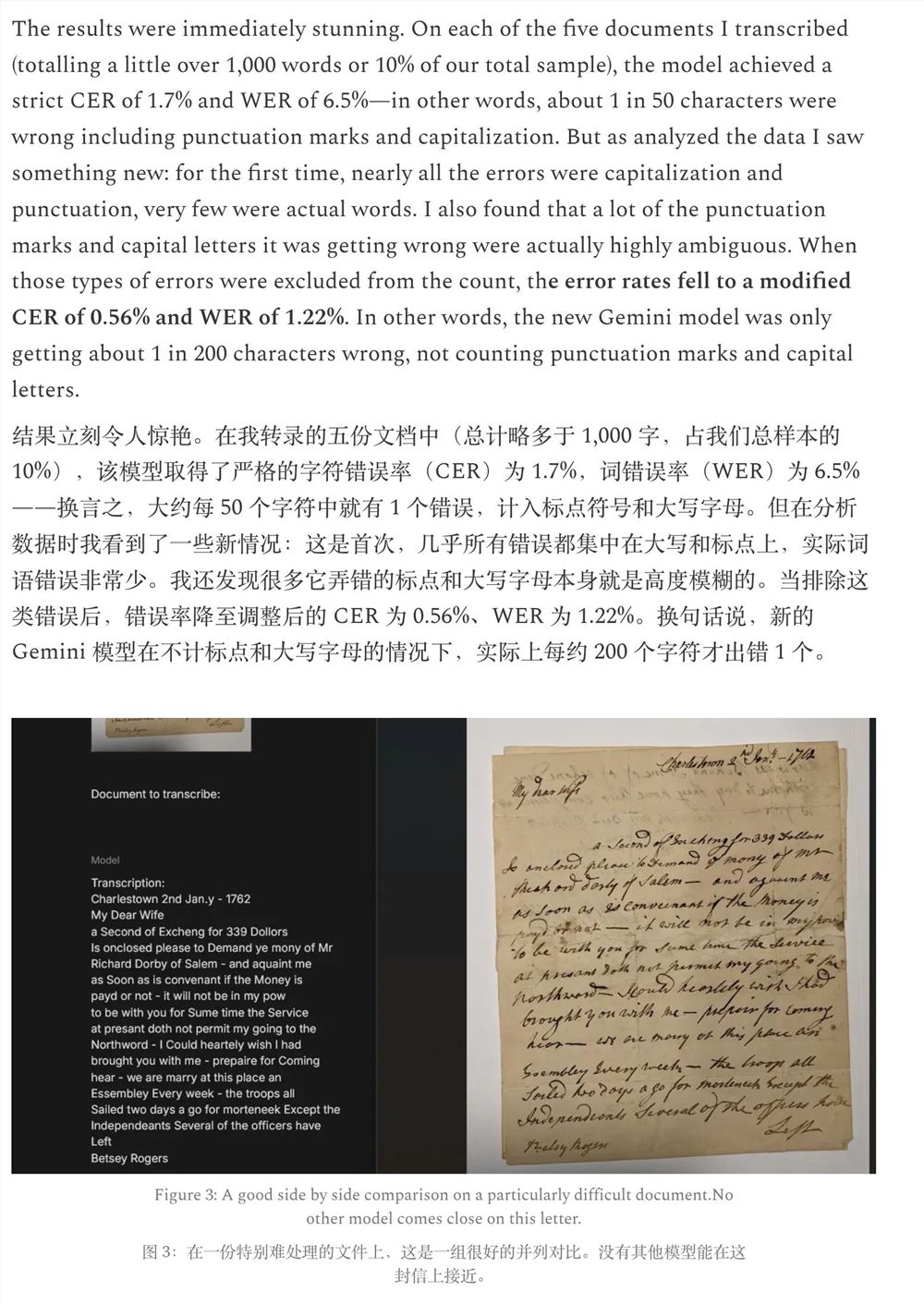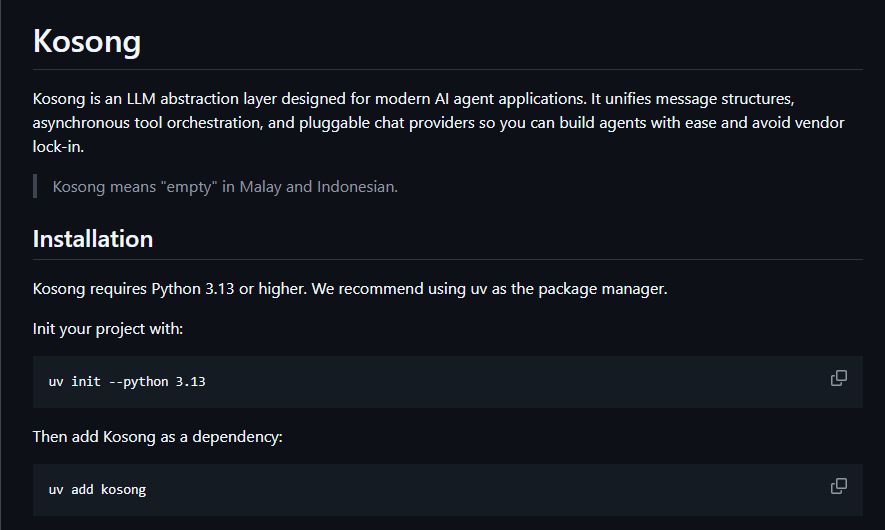A historian conducted a rigorous test on Gemini3Pro: 50 English academic handwritten samples of about 10,000 words, covering various complex scripts and imaging conditions. The results showed remarkable breakthroughs in character error rate (CER) and word error rate (WER), with CER at only 0.56% and WER at 1.22%, approaching or reaching the level of professional human transcription.

From "unreadable" to "able to reason," AI crosses the cognitive threshold
Traditional large language models, due to their "predictive" nature, perform poorly in high-ambiguity scenarios such as unconventional spellings, long s (ſ), unclear punctuation, and historical units of measurement. However, Gemini3 not only recognized complex handwritten tables that it was not trained on, but also outperformed students who had received professional training. Under strict scoring, the CER of the previous version Gemini-2.5-Pro was 4%, and WER was 11%; if punctuation and capitalization were excluded, it dropped to 2% and 4%. Gemini3 directly reduced the error rate to 1/7 to 1/9 of the original model, with an improvement of 50%–70%.
More than transcription: It begins to "understand" the historical world
The most impressive part is not the low error rate, but the emergence of implicit reasoning ability.
When faced with a blurred number, Gemini3 independently completed the missing context, performed multi-step conversions across historical currency and weight units, and ultimately reached the correct conclusion that the document's world needed abstract modeling — these symbols were never explicitly defined during training.

Awakening of "spontaneous logic" within statistical models?
The authors were amazed: Gemini3 seems to have crossed the boundary that experts long believed was "impassable for current architectures."
The self-organized integration of perception, memory, and logic is happening within the pure statistical framework — does this signal the birth of a new type of implicit reasoning mechanism? AIbase conclusion
From "unable to read ancient texts" to "able to reason about historical logic," Gemini3 is redefining the boundaries of AI in the humanities.










